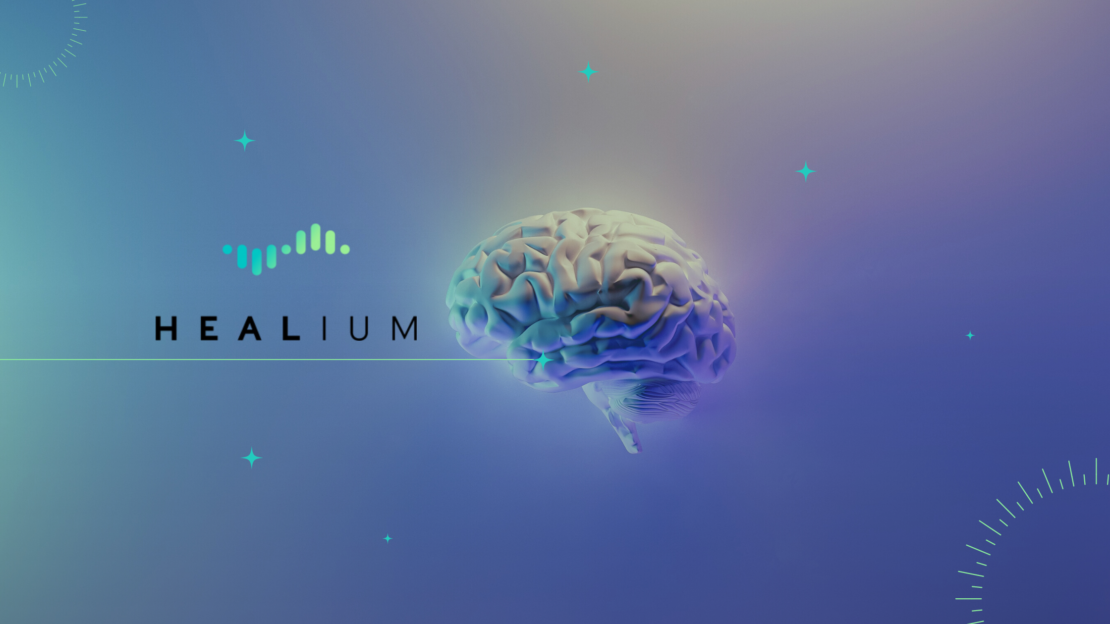Understanding Theta Brainwaves | Theta Wave Benefits, Frequency, & Self-Management 
Theta brainwaves are important for creating and storing memories, dreaming, creativity, and so much more. Learn everything there is to know about theta brainwaves here!

Electrical impulses fired off by the cells in your brain are identified as brainwaves. Scientists measure patterns in this electrical activity and classify them into different types of brainwaves based on their range of frequencies.
Different brainwave frequencies are associated with different mood states. Theta brainwaves in particular are associated with creativity, intuition, and memory & are often most dominant just before falling asleep when the mind is relaxed and drifting.
In this blog post, we’ll dive deeper into theta brainwaves, explore when they’re most dominant, and explain the best ways to balance the theta wave activity within your own brain.
The Types of Brainwaves
Your brain never truly shuts down, even when you’re asleep. At any given moment, your brain is firing off electrical signals that are generally classified under five categories.
Naturally, these categories can be further broken down (and it’s worth mentioning that the frequency ranges for each brainwave can sometimes differ), but at Healium we classify the different types of brainwaves as follows:
– Delta brainwaves: 0 – 2.75 Hz
– Theta brainwaves: 3.5 – 6.75 Hz
– Alpha brainwaves: 7.5 – 11.75 Hz
– Beta brainwaves: 13 – 29.75 Hz
– Gamma brainwaves: 31 – 49.75 Hz
Understanding Theta Brainwaves
Theta brainwaves are present in all stages of life, but they are most dominant during childhood.
As we age, theta waves become less dominant and are replaced by alpha and beta waves.
What Frequency Range Are Theta Brainwaves?
Theta brainwaves are frequencies that are between 3.5 – 6.75 Hz. This state is normally only present during sleep or deep meditation. When a person is in the theta state, they are in a very deep state of relaxation. The theta state is associated with dreaming, creativity, and intuitive insights.
Benefits of Theta Brainwaves
Theta brainwaves play a significant role in enhancing various aspects of mental and emotional well-being. Here are some of the key benefits:
Enhanced Creativity
Theta brainwaves foster a deeply relaxed state that allows the mind to wander freely. This state is ideal for creative activities such as art, music, and writing, enabling innovative thinking and problem-solving.
Improved Intuition
In the theta state, access to the subconscious mind is enhanced, which holds memories, experiences, and deep-seated knowledge. This improved access leads to greater intuitive insights, better decision-making, and a deeper understanding of one’s thoughts and emotions.
Deep Relaxation and Stress Reduction
Theta brainwaves promote a state of deep relaxation, reducing stress and anxiety. This state can be achieved through meditation, mindfulness practices, and other relaxation techniques, contributing to overall mental calmness and well-being.
Better Emotional Connection and Empathy
Theta waves increase emotional openness, enhancing empathy and the ability to connect with others. This heightened emotional sensitivity helps in understanding and sharing the feelings of others, fostering deeper interpersonal relationships and improved communication.
Enhanced Learning and Memory
Theta brainwaves are associated with improved learning and memory. In this state, the brain is more receptive to new information and better at storing and recalling memories. This benefit is particularly significant during sleep and meditation.
Access to Flow State
The theta state is often linked to the flow state, where individuals experience complete immersion and focus on an activity. In this state, distractions fade away, allowing for peak performance, heightened creativity, and increased productivity.
Better Sleep Quality
Theta brainwaves play a crucial role in the sleep cycle, particularly during the REM (rapid eye movement) phase, which is associated with dreaming. Enhanced theta activity can lead to better sleep quality, more restorative rest, and vivid dreams that aid in emotional processing.
Increased Self-Awareness
Practicing activities that boost theta brainwave activity, such as meditation and mindfulness, can lead to increased self-awareness. This heightened state of awareness helps individuals understand their thoughts, emotions, and behaviors more deeply, contributing to personal growth and mental health.
The Theta State: When Are Theta Brainwaves Most Dominant?
Theta brainwaves are most dominant in various states of deep relaxation and focus. Here are key scenarios where theta brainwaves take precedence:
Deep Meditation
During deep meditation, theta brainwaves become prominent, allowing for profound insights and heightened awareness. This state promotes deep relaxation and mental clarity.
Dreaming
Theta waves are closely associated with dreaming. As conscious awareness fades during sleep, theta waves facilitate a relaxed state conducive to vivid dreams.
Daytime Relaxation
Theta waves can also dominate during the day when we are in deeply relaxed states, such as daydreaming or meditation. Activities like yoga, pilates, and mindfulness practices help access this state, promoting creativity and mental calmness.
The Flow State
The flow state, characterized by intense focus and immersion in an activity, is another scenario where theta brainwaves are prevalent. In this state, distractions fade away, allowing for peak performance and creativity.
Creativity
The relaxed nature of theta brainwaves fosters creativity. This state allows the mind to wander freely, enhancing creative endeavors such as art and music by quieting the mind and focusing on the present moment.
Intuition
Theta brainwaves are linked to intuition by facilitating access to the subconscious mind, where memories, experiences, and deep-seated knowledge reside. This enhanced access leads to greater intuitive insights and a deeper understanding of subconscious thoughts.
Empathy
Theta waves also increase emotional openness, enhancing empathy. In this state, individuals can better understand and connect with others’ emotions, fostering deeper interpersonal connections.
Understanding and leveraging the dominance of theta brainwaves in these scenarios can enhance creativity, intuition, and empathy, contributing to overall well-being and personal growth.
Abnormal Theta Wave Activity
If theta brainwave activity falls outside your range of normalcy, it can lead to problems with memory, concentration, and sleep.
Abnormal theta activity has also been associated with mood disorders such as depression, bipolar disorder, and schizophrenia.
Ways To Help Return Theta Brainwaves to Normal Levels
There are several ways to help return theta brainwaves to normal levels through self-guided practices. However, if you’re experiencing more severe symptoms, it’s also important to inform your healthcare provider or seek out clinical neurofeedback therapy.
Meditation
Meditation is one of the most effective methods of increasing your theta levels if you find that they are too low, as it can help to calm the mind and focus the attention. Specific types of meditation that focus on the breath or on a mantra can be particularly helpful in restoring the balance of theta waves.
Meditation is a great way to help the body and mind relax. There are many types of meditation, so find one that works for you. For instance, guided meditation can be helpful if you need someone to lead you through the process. Mindfulness meditation practices involve focusing on the present moment and being aware of your thoughts and emotions without judgment.
Yoga
Yoga is another great way to help the body and mind relax. Yoga involves physical postures, breathing exercises, and meditation. It is a great way to stretch the body and release tension.
Pilates
Pilates is also a great way to help the body and mind relax. Pilates involves physical exercises, breathing exercises, and meditation. It is a great way to strengthen the body and get rid of tension.
Conclusion
Theta brainwaves are a normal part of the human experience. They are associated with the flow state, creativity, intuition, and empathy. However, they can also be associated with abnormal activity if they are experienced for prolonged periods or if we are experiencing intense emotions. If you’re experiencing theta brainwaves for prolonged periods or experiencing intense emotions, you can try using Healium.
Healium is a mental fitness tool that offers a new and active approach to meditation that’s powered by your body’s electricity. Using real-time data, it makes you more self-aware of your brain patterns and breathing so you can learn to self-manage your anxiety, focus more intently, and sleep better. Healium is not a replacement for psychotropic medication or professional counseling. It’s an exercise that as part of a healthly lifestyle can help you meet your mental wellness goals. The best part is that it only takes a few minutes a day to see results! So, if you’re looking for a way to reduce stress and improve your overall well-being, give Healium a try and immerse yourself in a new reality.
About the Author
Sarah Hill, a former interactive TV news journalist at NBC, ABC, and CBS affiliates in Missouri, gained recognition for pioneering interactive news broadcasting using Google Hangouts. She is now the CEO of Healium, the world’s first biometrically powered VR channel, helping those with stress, anxiety, insomnia, and other struggles through biofeedback storytelling. With patents, clinical validation, and over seven million views, she has reshaped the landscape of immersive media.






